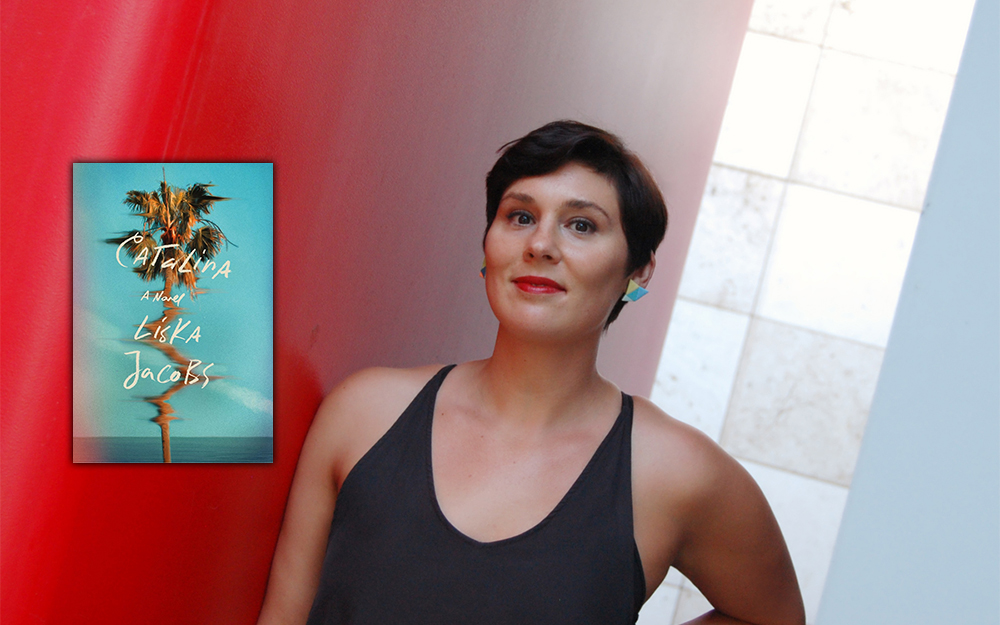
By Heidi Simmons
——
Catalina
by Liska Jacobs – Fiction
—–
Are our friends from college really our “friends?” How well did we really know them, and what was actually the connection besides classes, partying or hanging out? Catalina by Liska Jacobs (FSG Original, 231 pages) explores how tenuous our college relationships are and how difficult it is to be or have a true friend.
In this first person narrative, Elsa has returned to California after losing her job at New York’s Museum of Modern Art (MoMA) as the head curator’s assistant. After a brief stop in Bakersfield to visit her mother, Elsa is burning through her severance pay enjoying Santa Monica’s Miramar hotel, and all its fantastic amenities.
While visiting her mom, Elsa gleaned her mother’s medicine-cabinet taking all sorts of colorful pills that she washes down with expensive foo-foo drinks and hard liquor.
Turns out the lovely Elsa had an affair with the married museum curator and was found out and let go. She thought they were in love, when actually the curator is a serial abuser and predator.
As Elsa nurses her wounds, she agrees to meet up with her college pals for a trip to Catalina. Charly has been Elsa’s best friend since the eighth grade. In college, Charly met and married Jared. Elsa met and married Robby. They were all close friends.
But Elsa realized her mistake soon after the nuptials, divorced Robby and left for an exciting life in New York City. Robby has moved on and is dating Jane. Charly and Jared have made a successful life and are trying to have kids. They will all be sailing together on Jared’s wealthy friend Tom’s yacht.
When the college chums all reunite for the trip, Elsa feels like the outsider and is uncomfortable around them. Tall, pretty, aloof and constantly drunk, Elsa gets lots of attention — good and bad — from her pals.
Admittedly, life has been easy for Elsa, simply because she is beautiful. During the trip to Catalina on Tom’s sailboat, Charly confronts Elsa’s air of superiority and need for constant attention. Robby challenges her drinking, and Tom thinks she’s a slut.
Author Jacobs does a good job of weaving the convoluted and troubled relationships without the narrative becoming too melodramatic. We see moments of Elsa’s past, where we get an idea of what shaped—or destroyed her.
There is a nice sense of Southern California’s warmth and sunshine, making Catalina a perfect beach read.
Elsa is in a downward spiral and her self-destruction is making life on a sailboat difficult for all. She is an alpha female and rides the wave of her natural dominance.
The best moments in Catalina are when Elsa is self-reflective and takes a hard look at her own pathology. But unfortunately, these moments are too infrequent. However, the author does capture the angst of being untethered, thwarted and misunderstood.
Now in her early 30s, Elsa’s dreams and desires are lost as if sucked into the Pacific Ocean somewhere between the coast and Catalina –dragged down to never be retrieved.
Elsa has moments of clarity, even compassion, but she cannot bring herself to make amends. Elsa realizes it is not worth saving her friendships because she is not their friend and they do not understand who she is.
What I especially appreciated, was that although her friends think they have moved on with their lives since college, Elsa doesn’t see it that way. From Elsa’s perspective they are stuck in an uninteresting and uncultured life. In her mind, she is the one who stepped out of her comfort zone, found success and that’s why they cannot relate to her.
Whether Elsa is broken beyond repair is hard to say. She is not all wrong about her place in the universe. She was struck down with a “MeToo” moment, her college education has failed her, and the male-dominated patriarchal society is crushing her with double standards and unfair labels — yet sadly, using men might be her only way forward.
Jacobs captures the struggles for independent female millennials. Life is hard to navigate, and as women, it shouldn’t be all about having a man take care of you or being married with kids. Some friends get that, while others do not.













































